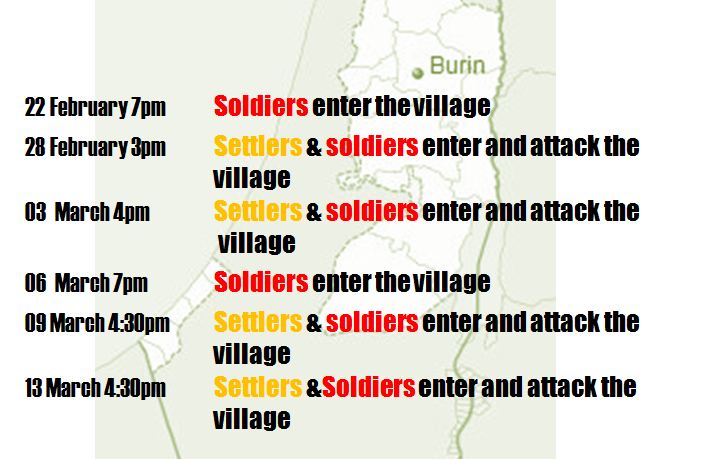Tag: ‘Price tag’ campaign
-
A family’s nightmare: Beaten and kidnapped by illegal settlers near Qadumim as Israeli military facilitates the crime
by Jonas Weber 23 March 2012 | International Solidarity Movement, West Bank A family of four was kidnapped by settlers on Thursday afternoon while having a picnic close by an outpost near Qadumim. When soldiers arrived at the scene they chased away the relatives of the kidnapped family with tear gas and rubber coated steel bullets alongside settlers throwing…
-
Mapping a pattern of Israeli violence in Burin
13 March 2012 | International Solidarity Movement, West Bank The pattern of settler and military invasion of Burin, a village near Nablus, is what locals and internationals are mapping to brace themselves for more property damage, violence, and threats by nearby illegal settlements and hardcore adherents to the volatile “Price Tag Campaign.” If the pattern…
-
Israeli flags hanged in Yanoun are a reminder of Itamar settler violence
by Ramon Garcia 7 March 2012 | International Solidarity Movement, West Bank The illegal settlement of Itamar, constructed illegally on the land of Aqraba, Awarta, and Beit Furik, has taken a provocative step of incitement in the village of Yanoun, from which Zionists have also stolen land. On 7 March 2o12 illegal settlers entered the…


